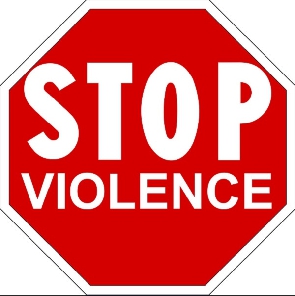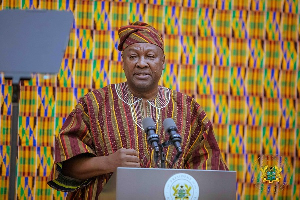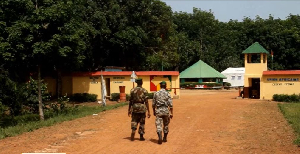Thousands of worried citizens have taken to the streets to protest for rights that are openly exercised elsewhere after the death of Masha Amini, a stunning 22-year-old Iranian woman who died while in police custody for allegedly violating Iran's strict hijab laws.
Amini was allegedly wearing a hijab in violation of the law. In countries like Sudan, Saudi Arabia, Malaysia and Iran there is a “morality police” that is tasked to enforce the Islamic code of conduct in public such that when Ghanaians visit those countries, we conform to their rules.
Additionally, there are tight limitations on what people can access and equally share online in nations including France, the United Arab Emirates, Korea, Egypt, and Pakistan. Their internet is censored, and the nation conducts online surveillance.
However, the story is different in Ghana. Certain freedoms, including those related to speech, internet use, attire, and association, are available to Ghanaian citizens. It is distressing to see how frequently the nation's future leaders abuse these freedoms.
Very recently, a group of students (girls) from the Chiana Senior High School, took to the internet and rained insults on the President of Ghana using unprintable words that are not promoted by the Ghanaian culture.
In Ghana, it is expected that a child must respect the elderly. The question is, is the internet now allowing the Ghanaian youth to gladly break these moral codes? These and more are the acts of violence happening in our schools. Is it the case that schools have become fertile grounds to promote indiscipline and violence?
What is School Violence?
School violence is violence that occurs on school property, on the way to or from school or school-sponsored events, or during a school-sponsored activity. A person can be a victim, a perpetrator, or a witness of school violence. School violence comes in many forms. These acts include physical violence, emotional violence, sexual violence, bullying and cyberbullying, with psychological violence often disregarded.

Bullying can be defined as unwanted, aggressive behaviour which involves a real or perceived imbalance of power. According to the national Centre for Educational Statistics in the US 2015, 1 in every 4 students; that is 22% of students reported being bullied. As of 2017, the numbers had increased by a good 10%.
There has been a high increase in school violence in the Ghanaian community and the school is not an exception. There have been instances where school environments have been described as unfriendly especially for persons with disabilities because of the violence and bullying by peers and teachers.
Interestingly, the nature of bullying in Ghanaian schools sampled from three schools from three regions span physical, social, verbal, cyber, and psychological with physical and verbal bullying being the most dominant.
In another study on the effects of cyberbullying on students at two universities in the Northern Region of Ghana, it was revealed that cyberbullying is on the ascendency and the perpetrators use threats, video calls, and give negative comments on texts and pictures as a means of preying on their victims. These actions often affect victims’ psychology, academics, and sometimes body.
In a worrying situation, violence in schools is increasingly becoming sophisticated. Teachers and school properties bear the brunt of erring and violent students as was the case at Nyinahin Catholic School in the Ashanti region, where it was reported that the 2021 final-year students burnt the boys' dormitory.

Such acts invariably go against the ideals of UNESCO to promote international understanding, cooperation, and world peace, to inculcate tolerance and a desire for truth in students, and to promote human rights and the rights of the people to contribute to the training in civics and democracy of students.
Indeed, violence and bullying including cyberbullying have a negative effect on academic achievement, mental health, and quality of life of students. Children who are frequently bullied are nearly three times as likely to feel left out at school as those who are not.
They are also twice as likely to miss out on school and have a higher tendency to leave formal education after finishing secondary school. This has a negative effect on future chances and academic success. Anxiety, worry, and insecurity are not conducive to learning and reduce everyone's ability to learn effectively. With this, it can be inferred that school violence is on the rise.
Cyberbullying is the use of electronic communication to bully a person, typically by sending messages of an intimidating or threatening nature. Many school goers have taken to the internet.
These acts work against the Convention against Discrimination in Schools as well as the 1992 Constitution, which confers on every individual, the right to education. It is for this reason that UNESCO celebrates International Day against Violence and Bullying at Schools including Cyberbullying which was first observed on November 5, 2020.
The International Day 2022
In this year’s celebration on 3rd November 2022, UNESCO placed the spotlight on the role of teachers in curbing school violence. Hence, a global online survey was held in 147 countries in their quest to increase the visibility of the international day against violence and bullying at Schools Including Cyberbullying, and raise global awareness of and commitment to strengthening the role of teachers in preventing and addressing school violence including bullying.
It was deducted that four in five teachers see it as their responsibility to tackle issues of violence Considering this, the Ghana Commission for UNESCO organised an online forum dubbed “Not On my Watch: The Role of Teachers in Curbing Bullying and School Violence: Key Findings and Recommendations” on Thursday, 10th November 2022 with about 105 participants.
There were knowledgeable speakers who provided insight on the topic and addressed questions asked by the teachers. They were in the persons of Rev. Prof. Kankam Boadu (Dean of Faculty of Humanities and Social Sciences, UCC), Mr. Selase -Dzormeku (Deputy Director in Charge of School Health and Safety-Ministry of Education), Mr. Roland Takyi (Programme Officer at the Guidance and Counselling Unit of the GES, Headquarters) and Ms. Afia Darko Asante (National Cybersecurity Authority).
Ms. Afia Darko Asante emphatically stated that our children are not restricted online. They should be given certain boundaries when it comes to their use of the internet. Mr. Selase Dzormeku stated that educationists should make use of professionals such as psychologists and the police where needed.
Prof. Kankam also stated that teachers themselves should be on the ascendency. They should act as role models to the students. Mr. Takyi said teachers who are observant easily recognize a psychological case of abuse of students.
There are resources for teachers to use to combat school violence. These are the Safe School manual for teachers, the Safe School training manual, and the Peer-to-Peer manual. Cyberbullying victims or concerned teachers or citizens may send reports via email: report@csa.gov.gh / call: 292 / SMS: 292 / Whatsapp: 0501603111 / Mobile App: CSA GHANA.
Students with special needs should not be left out when dealing with issues of violence and bullying among students. There is a special education division adopted resource pack for use in special schools.
At the end of the 2-hour forum, participants were convinced that more efforts must be done to stem school violence from our schools. There was general agreement that teachers alone cannot ensure that bullying and school violence among students are curbed. The whole education approach must be adopted.
This holistic approach incorporates a range of complementary actions and necessities the engagement of different stakeholders both within and outside of the school setting. The 9 components of the whole education approach to prevent and address bullying and cyberbullying are as follows:

As a result, the Ghana Commission for UNESCO reiterated that parents, headteachers, instructors, students, and the entire school community had a responsibility to play in the fight against school violence.
Opinions of Friday, 9 December 2022
Columnist: Denise Addo















